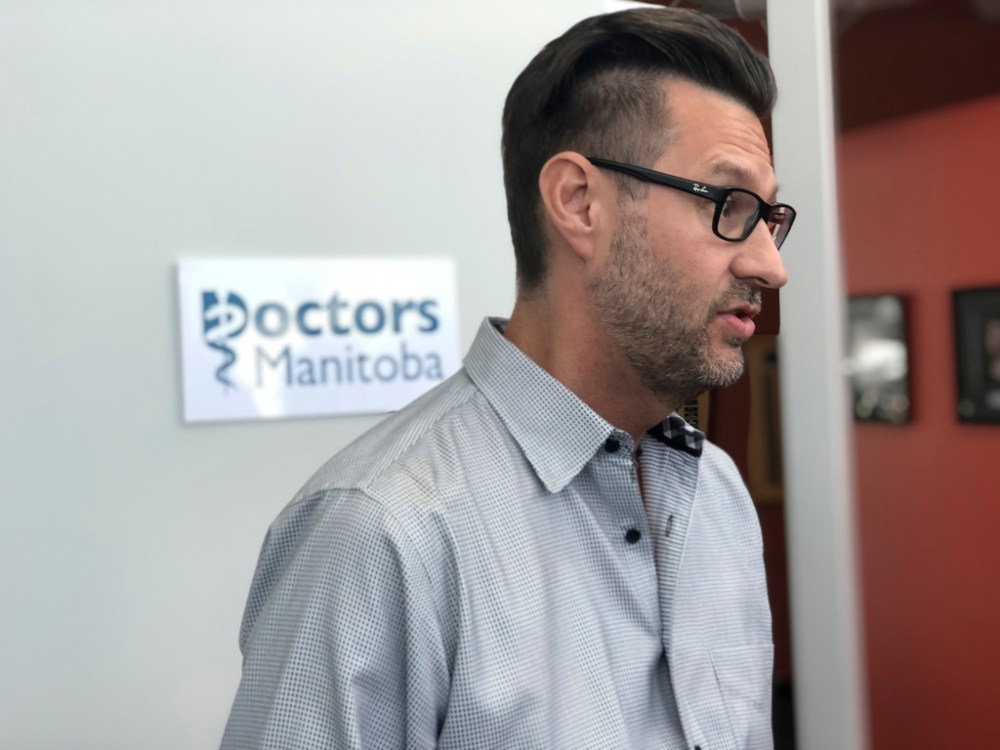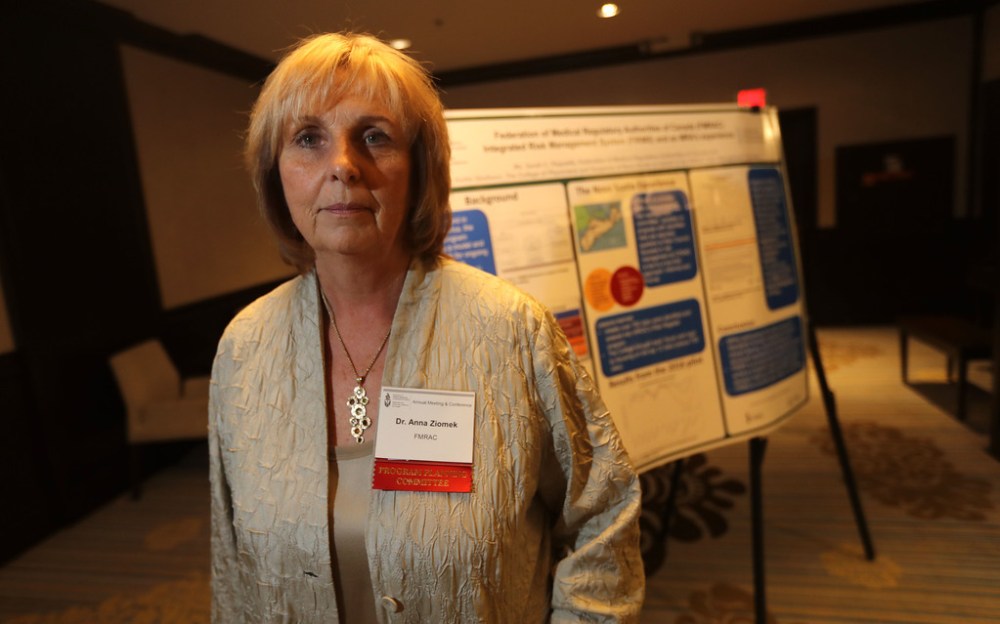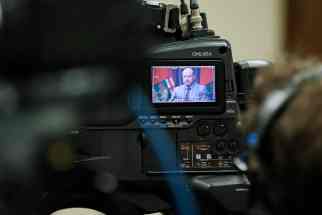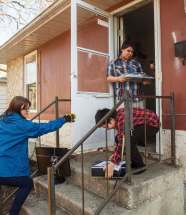Community physicians secure no PPE, no treatment option
Read this article for free:
or
Already have an account? Log in here »
To continue reading, please subscribe:
Monthly Digital Subscription
$0 for the first 4 weeks*
- Enjoy unlimited reading on winnipegfreepress.com
- Read the E-Edition, our digital replica newspaper
- Access News Break, our award-winning app
- Play interactive puzzles
*No charge for 4 weeks then price increases to the regular rate of $19.00 plus GST every four weeks. Offer available to new and qualified returning subscribers only. Cancel any time.
Monthly Digital Subscription
$4.75/week*
- Enjoy unlimited reading on winnipegfreepress.com
- Read the E-Edition, our digital replica newspaper
- Access News Break, our award-winning app
- Play interactive puzzles
*Billed as $19 plus GST every four weeks. Cancel any time.
To continue reading, please subscribe:
Add Free Press access to your Brandon Sun subscription for only an additional
$1 for the first 4 weeks*
*Your next subscription payment will increase by $1.00 and you will be charged $16.99 plus GST for four weeks. After four weeks, your payment will increase to $23.99 plus GST every four weeks.
Read unlimited articles for free today:
or
Already have an account? Log in here »
Hey there, time traveller!
This article was published 17/04/2020 (2064 days ago), so information in it may no longer be current.
A lack of personal protective equipment and restrictions on the use of virtual consultations have prompted Doctors Manitoba to take unprecedented action to protect its 3,000 members.
Dr. Fourie Smith, president of the association’s board of directors, confirmed this week the College of Physicians & Surgeons of Manitoba agreed in early April to amend its protocol on duty of care to allow a doctor to refuse to treat a patient if the required PPE was not available.
The request to the college was made after provincial agency Shared Health issued new guidelines during the novel coronavirus pandemic, requiring PPE (masks, gloves and gowns) for all “direct patient, client and resident interactions.”
A subsequent Doctors Manitoba survey of more than 500 community-based physicians revealed only one-third had received PPE from the province’s central supply; less than one-fifth said they had enough PPE to safely meet with patients.
“For community-based physicians, it’s important that you only conduct assessments of patients if you are able to take the precautions that are appropriate for that particular patient encounter,” says a college bulletin dated April 6.
“If you are unable to protect yourself in accordance with the latest Shared Health requirements, shift as much of your work to virtual as possible, redirect patients appropriately, and assist your patients in obtaining access to care that you cannot provide.”
College registrar Dr. Anna Ziomek said in an email statement the “unprecedented” threat posed by COVID-19 prompted her to issue the bulletin so physicians can remain healthy to continue to provide medical care.
“We continue to endorse that all our members owe a duty of care to patients, but if a situation of scarce resources arises, some difficult decisions may be required,” Ziomek said.
However, the new language around duty of care does not mean physicians are withdrawing services, Smith said.
“Doctors are doing their best to care for patients right now. But if we don’t have the appropriate equipment and contract the virus, we could be putting other patients at risk, and denying future patients care if physicians are self-isolating.”

After weeks of deflecting questions about a potential PPE shortage, Lanette Siragusa, chief nursing officer for Shared Heath, confirmed Friday that Manitoba (like most of the world) is suffering from a “disruption” in the production, supply and distribution of PPE.
Donations from private businesses and individuals have helped, she said, but there are still concerns about the overall supply if the COVID-19 threat continues to linger.
A spokeswoman for Shared Health said PPE must be provided first to staff in “hospitals and (those) offering emergency response where screening may not be possible.” The next priority would be in facilities with populations more vulnerable to chronic illnesses (such as long-term and residential care).
Health officials are working on alternative protocols for doctors’ offices and clinics where “staff are able to prepare in advance and have access to a more fulsome medical history.” These alternatives could include increased focus on hand hygiene, reuse and disinfection of eye protection, and reusable cloth gowns.
Complicating the problem of a PPE shortage is the fact the province has, so far, resisted requests by Doctors Manitoba to expand the of use of virtual consultations.
In mid-March, Manitoba became one of the first provines to allow physicians to charge fees for some consultations via telephone or video conference. From March 14-23, doctors charged for more than 15,000 virtual examinations or consultations — a clear sign it is a popular option.
However, Smith said the types of consultations allowed under the Manitoba initiative are too limited, and prevent physicians from conducting more complex exams with patients with multiple or chronic health problems. Currently, fees are only being paid for “minor” health issues or follow-up appointments.

Most provinces, some of which were much later in introducing virtual care, have since expanded the range of services and consultations available to be delivered through telephone and video link, he added.
“The current virtual care tariff is woefully inadequate,” Smith said. “Those patients with more complex health issues or who have multiple conditions are not well-served.”
dan.lett@freepress.mb.ca

Born and raised in and around Toronto, Dan Lett came to Winnipeg in 1986, less than a year out of journalism school with a lifelong dream to be a newspaper reporter.
Our newsroom depends on a growing audience of readers to power our journalism. If you are not a paid reader, please consider becoming a subscriber.
Our newsroom depends on its audience of readers to power our journalism. Thank you for your support.








